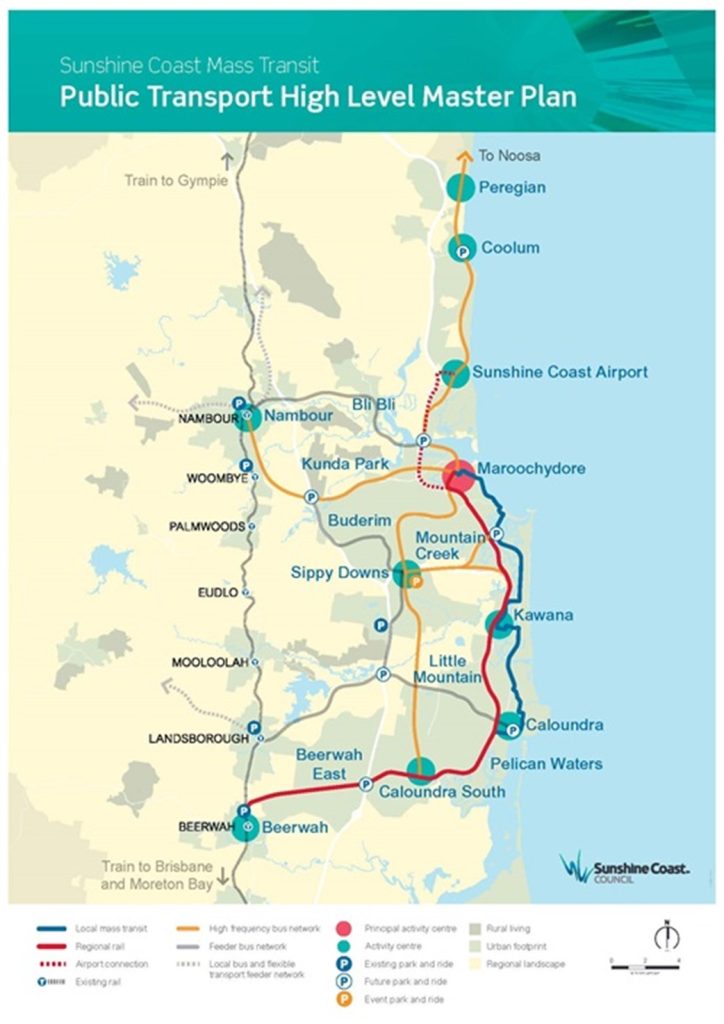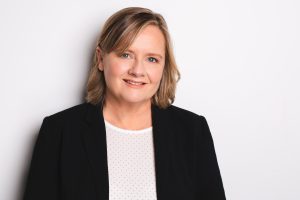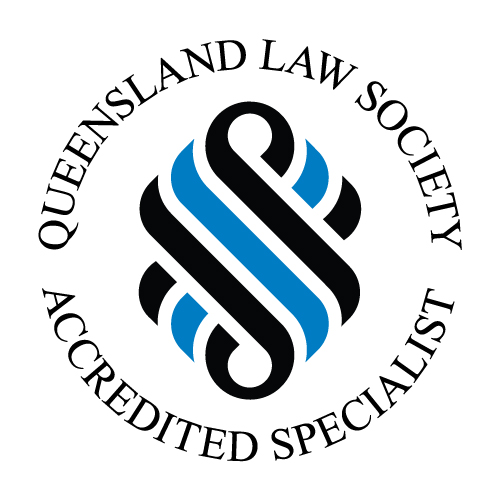It seems like the process of upgrading our transport infrastructure is never-ending, but with Brisbane holding the 2032 Olympics, that process is on steroids.
Not only will the Sunshine Coast be hosting a number of Olympic events, it has a projected population increase of 200,000 over the next 20 years. The race to fix the road and rail access to the Sunshine Coast is on!
Some of the proposed projects that will affect our region are:
- Heavy passenger rail – The proposal is to build a new dedicated track along the existing North Coast Line between Brisbane and Beerwah, and a new rail corridor to connect coastal population centers including Caloundra, Kawana and Maroochydore. The connection from Beerwah to Caloundra and Maroochydore, is to be jointly funded by the Federal and State governments and will be constructed in time for the Olympics. As residents will be aware, currently the rail line does not come into the coastal areas of the Sunshine Coast, but goes inland through Beerwah and Landsborough, and then on to Nambour.
- The Beerburrum to Nambour rail upgrade – to improve that stretch of the existing track and replace some of the older single platform stations;
- The DTMR and Sunshine Coast Council – are considering the business case for various mass transport projects, including light rail vehicles running at high frequency on a dedicated trackway (mostly in the centre of the road), to connect centres within the Sunshine Coast;
- The North Brisbane to Beerburrum Western Alternative Highway – to take congestion off the Bruce Highway between Brisbane and the Sunshine Coast. The proposal is for a 60-kilometre transport corridor extending from Steve Irwin Way at Beerburrum to the North Brisbane Area;
- The Bruce Highway upgrade – there are significant upgrades taking place between Caboolture and Steve Irwin Way, as well as the ongoing upgrades around Gympie.
- Mooloolah River Interchange Upgrade – stage 1 of this project has started and affected property owners have received resumption letters. More information is available here: Sunshine Motorway, Mooloolah River Interchange Upgrade (Stage 1) | Department of Transport and Main Roads (tmr.qld.gov.au)

Map provided by Sunshine Coast Council – Our future transport plan (sunshinecoast.qld.gov.au)
In order to facilitate each of these projects, significant amounts of private land will need to be resumed.
The funding for each of these projects includes a component to purchase the private land required to allow the construction of infrastructure to take place. Whilst the greater public interest rests with having efficient and modern transport infrastructure paid for by taxpayers, some landowners will end up paying more dearly for that benefit.
In Queensland, a landowner is not entitled to compensation for the stress and inconvenience of having land resumed, let alone the heartbreak when a cherished family home or rural property is resumed. The law governing resumptions in Queensland provides that the affected landowner should be no better and no worse off after the resumption. In other words, they should be no better or worse off in a monetary sense, so the compensation amount should be the equivalent of what was taken away from them.
However, most landowners who have been through the process would say that it is less than fair because:
- from the time that the public planning documents are available until the compensation is paid, there is often years of uncertainty over what will be resumed and when;
- negotiations can be difficult with a well-resourced government authority, particularly when the legal costs involved in going to the Land Court can be prohibitive, and
- nothing can compensate the landowner for the extra work and stress involved in finding somewhere to relocate either as a place to live or a new place to operate a business or farming enterprise.
Whilst it may be true to say that ultimately the landowner will be paid compensation equivalent to the value of the land taken, they will not get back the time spent, or be compensated for the stress and inconvenience involved in the resumption.
Negotiating with a resuming authority can be difficult. Under the legislation, landowners are entitled to recover the cost of obtaining appropriate legal and town planning advice and would be well advised to do so to ensure the best outcome.
Sarah Davies
Director
Sarah Davies Legal
Accredited Specialist – Commercial Litigation
This article is produced as general information in summary for clients and should not be relied upon as a substitute for detailed legal advice or as a basis for formulating business or other decisions. Formal legal advice should be sought in relation to particular matters. Sarah Davies Legal Pty Ltd asserts copyright over the contents of this document.




